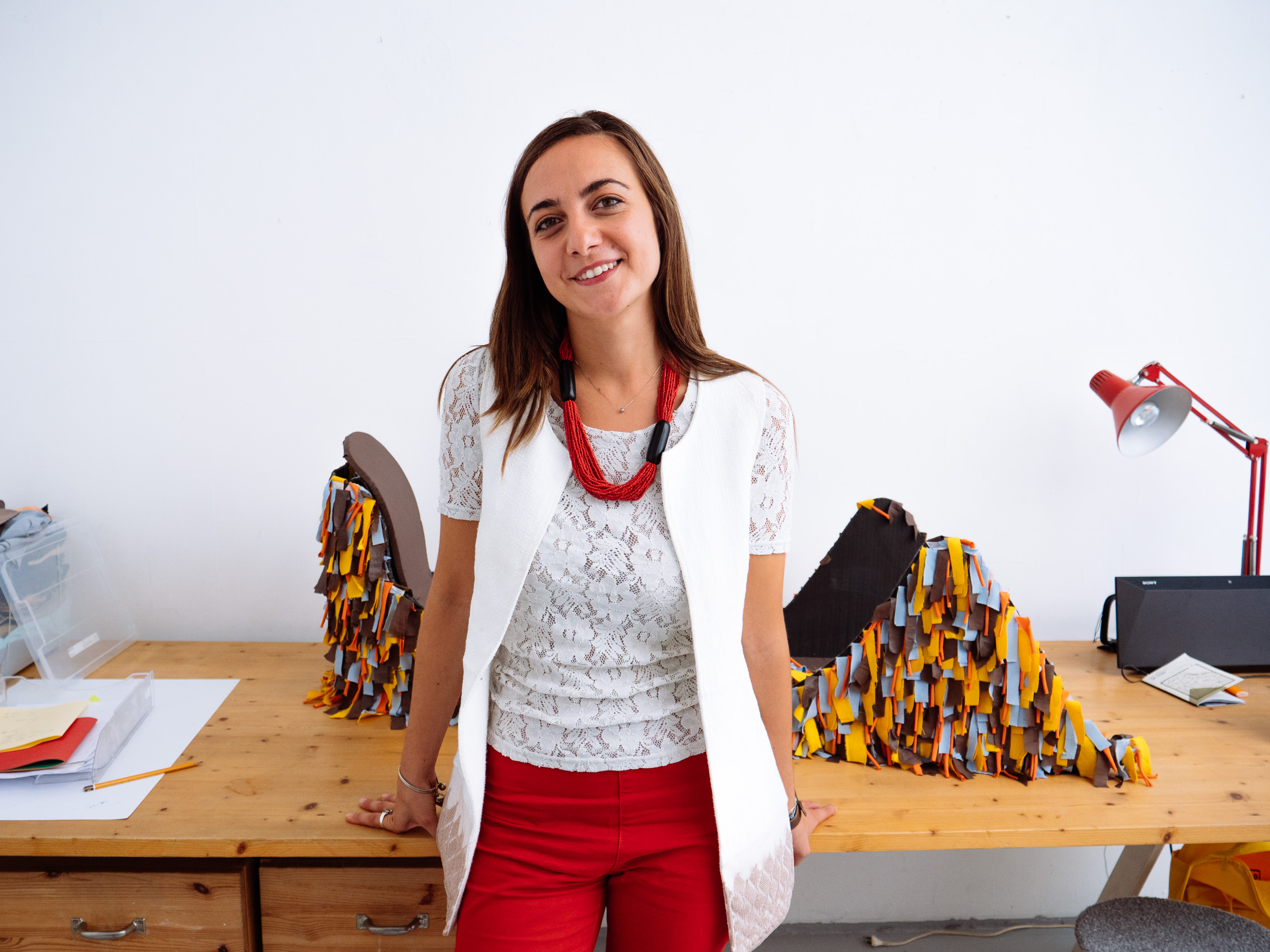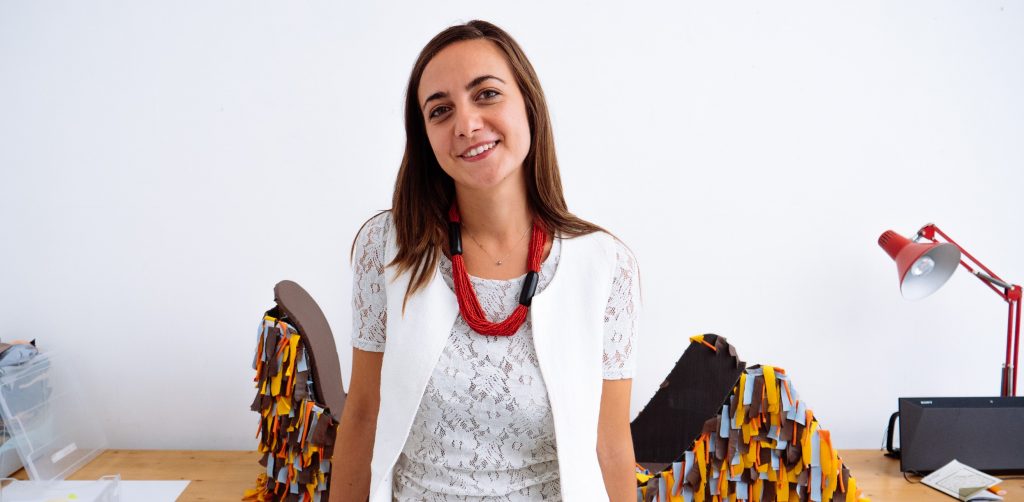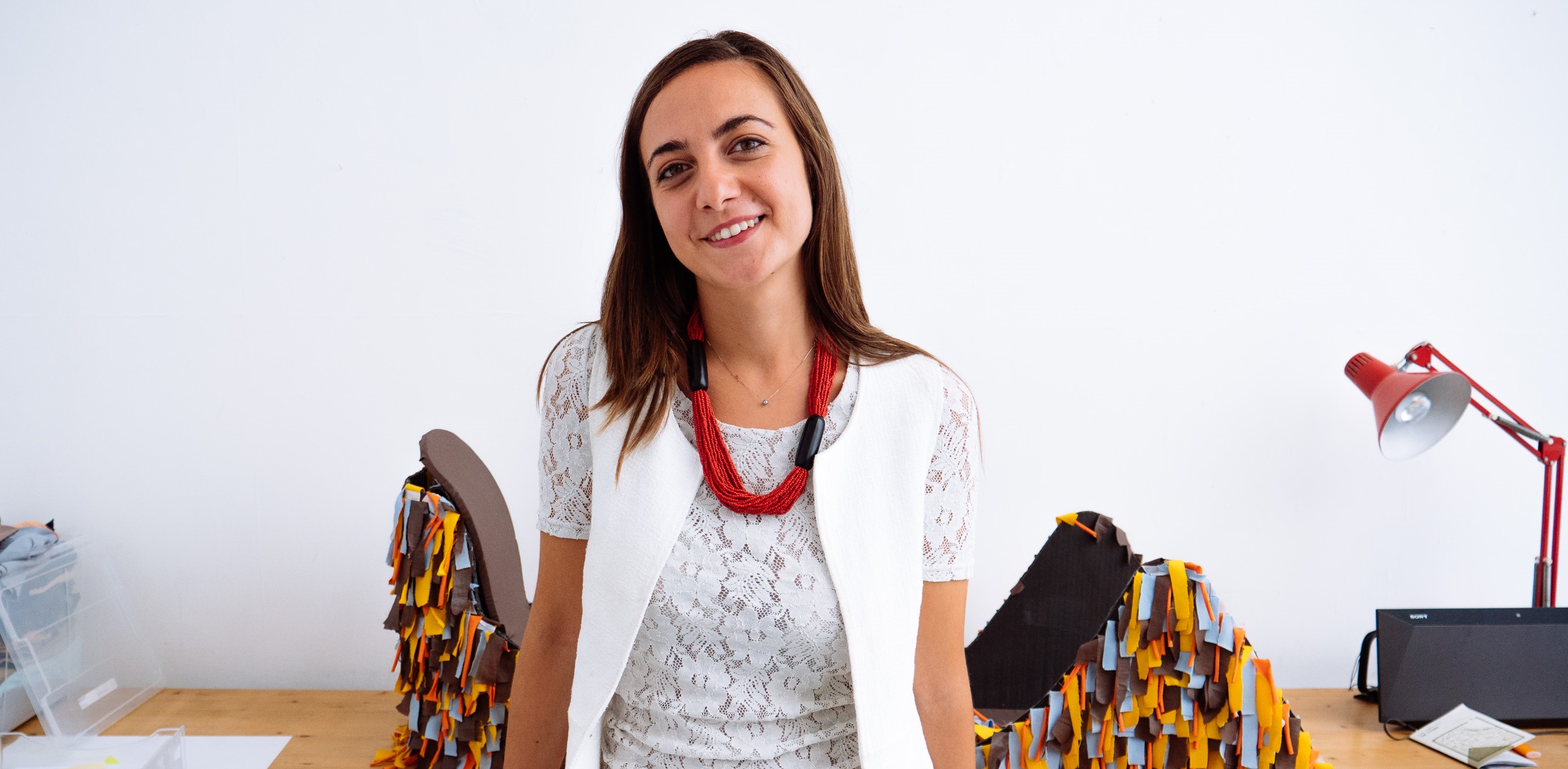An interview with Giulia Pardini from “Latitudo” (Italy)
Giulia Pardini, an emerging curator from “Latitudo”, believes that art may open new unexpected horizons and stimulate people’s imagination in ways, that they have never thought it could. In the following interview, the young curator shares her thoughts on the multifunctional nature of “Latitudo”, her curatorial inspirations as well as her conviction that we are all a part of the cultural heritage and community building.

The main objective of “Latitudo” is exhibition identity. Could you tell us a little more about its everyday activities?
“Latitudo” organises events, exhibitions and it has recently strengthened its expertise in the cultural heritage, conceiving and curating an exhibition and a project from the stages of inception and concept development. One of our main goals is to provide a real form to all types of creative ideas. We develop the concept, we plan its organization, we offer subsidiary services (printing, didactic and advisory ones), as well as help editing the catalogues. We follow the entire course of the development of the project in order to create a spectacular and unique event. Creating links and connections is one of our aims. Working with young students who focus on urban suburbs, has enabled us to take things that at the beginning have been nothing but mere dreams and materialise them in the reality. Workshops, seminars, and performative events can transform a simple exhibition into an elaborate project.
You have been working as an assistant curator for quite some time now. What would be your curatorial interests? What inspires you in art, as an emerging curator and as a person?
I am a curious and dynamic person, interested in the mix of different cultures and traditions. I think that in the contemporary world, cultural diversity has become a staple concept. Contemporary art is the reflection of our society and our culture; it provides us with a possibility to discover the essence of the world from a different point of view. I think that art does not always have to be understandable, but it must lead people to a different way of thinking from what they have expected: art and culture have the ability to stimulate people’s imagination and also to give them a possibility to explore the world. I find inspiration in my everyday life and in people, as well as reading and listening to news and facing different opinions in order to understand the world I live in as much as possible.
Rome is a big city. Is it easy to feel some sort of community spirit within it?
I have moved to Rome three years ago and I love to live here. Rome can be a comfortable and snugly city. Like an old “granny”, Rome can be a really pleasant place to live in and to be a part of. I cannot feel the lively energy of a dynamic city like London or New York, but I feel like a part of the big belly for sure! This, let us call it “belly”, is an old city with fantastic ruins and ancient roots. There are many communities in Rome, not just one, and I feel like being a part of each of them and it is like being a citizen of the melting pot of the society.
Do you think that bringing people’s attention to art and the local heritage might help them connect with each other and inspire the need to build a community?
Everyone is involved in the process of constructing the cultural heritage and everyone takes part in the act of creating a community. I think that being part of the same community and trying to understand its historical, cultural, economic, and social context, is the first step to make you feel like being at home and as a part of a wide community that embraces every kind of culture and people in it. Thanks to “Magic Carpets”, we will be able to connect several communities that will collaborate, share ideas and traditions, in order to create a large and unified community. This community will have different roots, but similar goals and intentions.
Working alongside “Qwatz”, “Latitudo” plays its part in promoting all sorts of residencies. Why do you think international exchange is important in today’s world? Do you think it can help reveal the locality-related issues?
The international exchange is important, because it gives everyone an opportunity to discover and embrace a new culture by the full immersion in it. It can also help people grow up and open their mind to a different kind of life and culture. The foreigner’s point of view should be considered more than it usually is, since they are not involved in the local issues. This is the reason why the international exchange is the point to take off from: by letting people from abroad come here and then express their feedback, we can actually begin to face and solve our problems.

